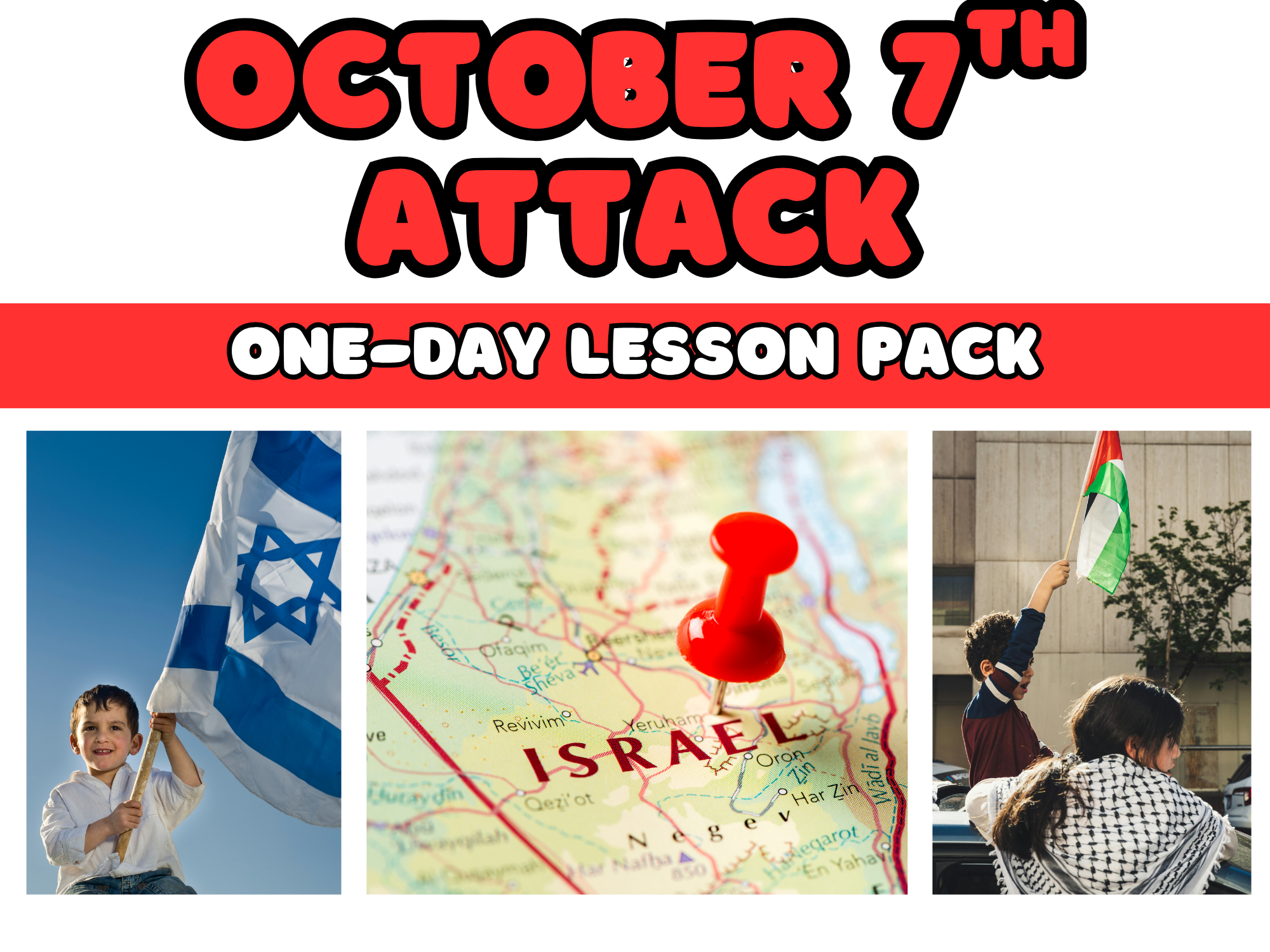Why Teaching the Hamas-Israel Conflict in Your Social Studies Classroom Matters
Every year, our students come into class with questions shaped by the world around them—news alerts, TikTok clips, family conversations, and headlines they don’t fully understand. As social studies teachers, we have a responsibility not to shy away from difficult topics, but to meet them with clarity, context, and care.
One of the most complex and pressing issues of our time is the ongoing conflict between Hamas and Israel. Even if your curriculum doesn’t explicitly include it, the conflict is highly relevant to core themes we do teach: power, borders, resistance, identity, governance, and human rights.
Why It’s Important to Teach This Conflict
Students Are Already Hearing About It
Avoiding the conversation doesn’t shield students—it leaves them with misinformation or confusion. By providing a structured, fact-based lesson, we help them develop the skills to critically evaluate media and understand nuance.It Connects to Your Curriculum
From ancient civilizations in 6th grade to modern global conflicts in 8th, the themes of land, religion, colonization, and nationalism run throughout social studies. The Israel-Palestine conflict is a modern extension of many of these themes, and teaching it helps students see how the past informs the present.It Models Civil Discourse
Teaching controversial topics gives students practice engaging in respectful discussion, asking questions, and building empathy for perspectives that differ from their own. That’s not just a classroom goal—that’s a life skill.It Humanizes the Headlines
When we zoom out too far, we lose the human cost. This lesson helps students think about the impact of geopolitical decisions on everyday people—children, families, and communities living in conflict zones.It Supports Media Literacy
In an era of algorithm-driven misinformation, it’s critical to help students sort fact from opinion, recognize bias, and ask deeper questions about the sources of their information.
A One-Day, Standards-Aligned Lesson to Get You Started
If you’re not sure where to begin, I’ve got you covered. I created a one-day lesson that introduces students to the history, key players, and current issues in the Hamas-Israel conflict using age-appropriate texts and guided questions. It’s built for middle school classrooms and focuses on critical thinking, primary source analysis, and respectful dialogue.
👉 Click here to download the Hamas-Israel Conflict One-Day Lesson on TpT
This is the lesson I wish I had when I first tried to teach this topic—structured, flexible, and deeply relevant.
Don’t let discomfort keep you from teaching what matters. With the right tools and framing, we can help students understand the world—not just as it is, but as it could be.



